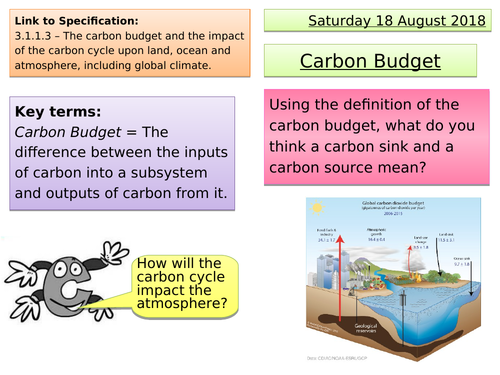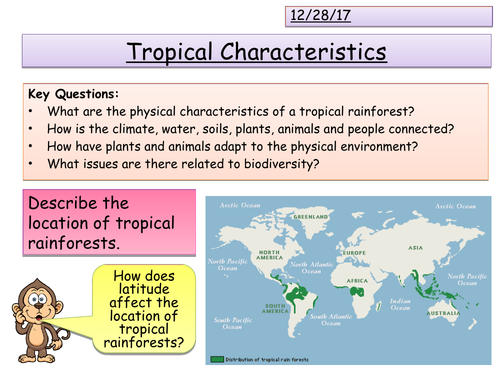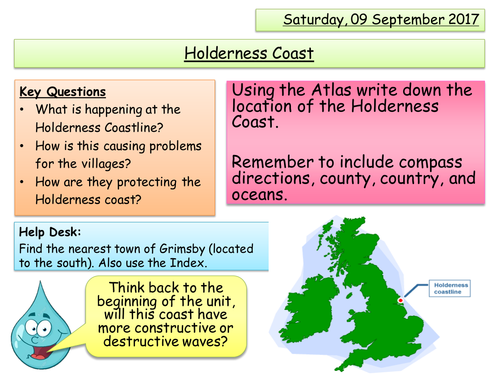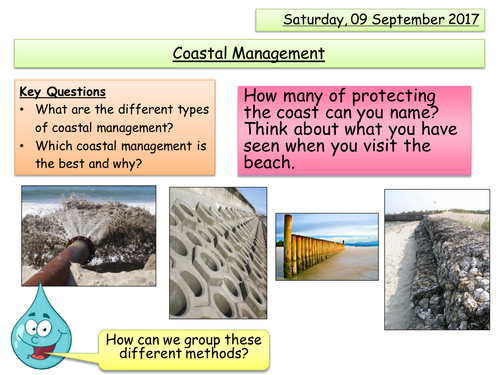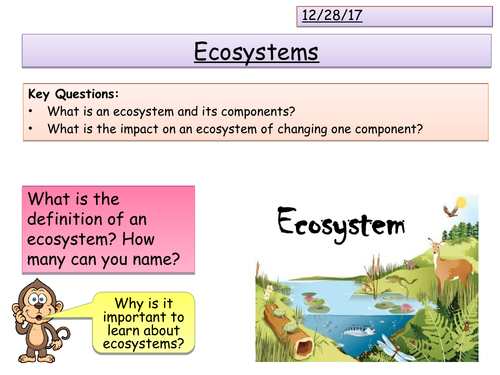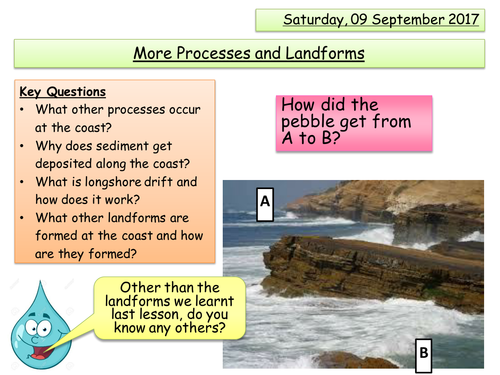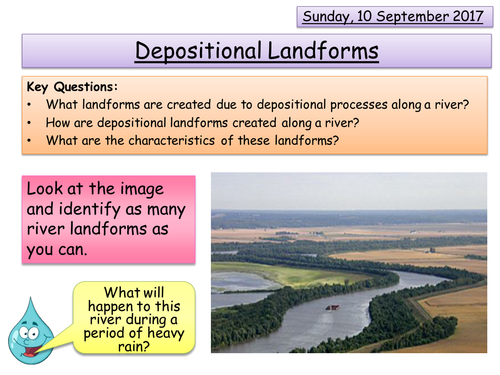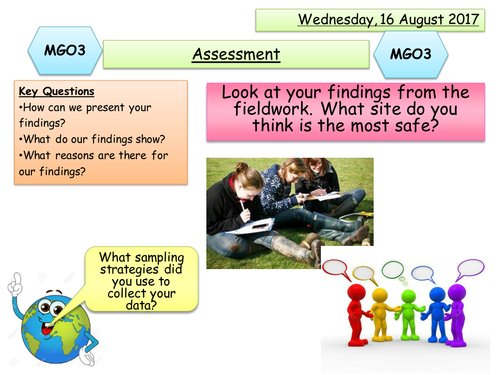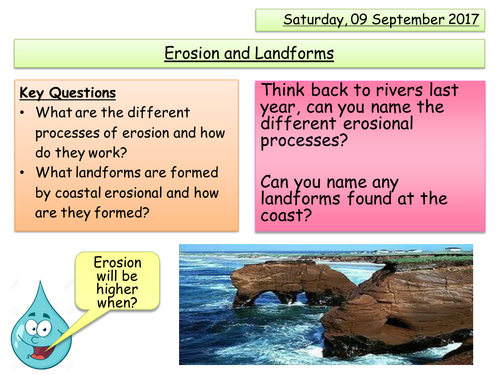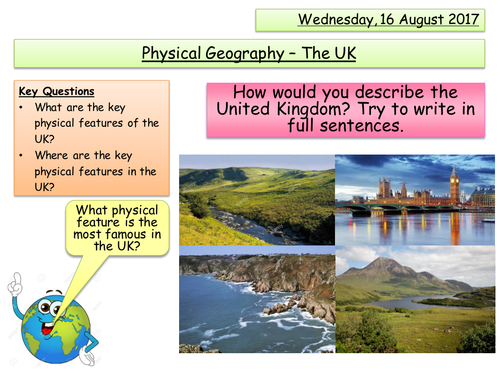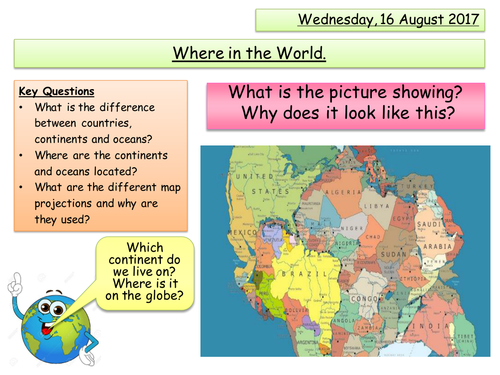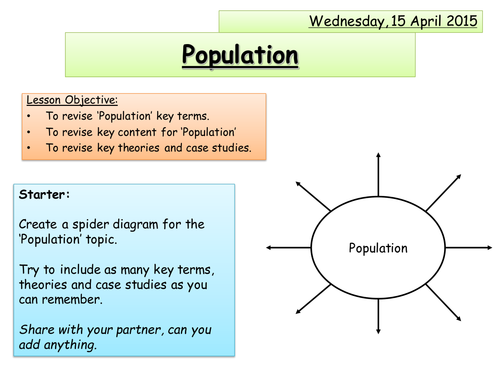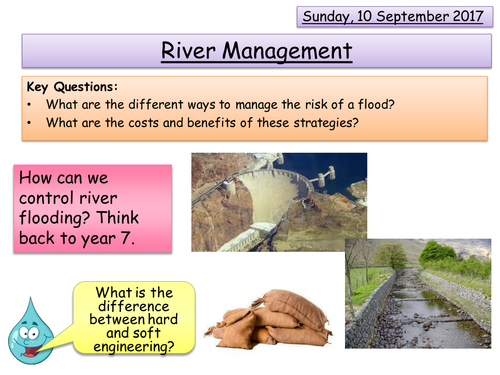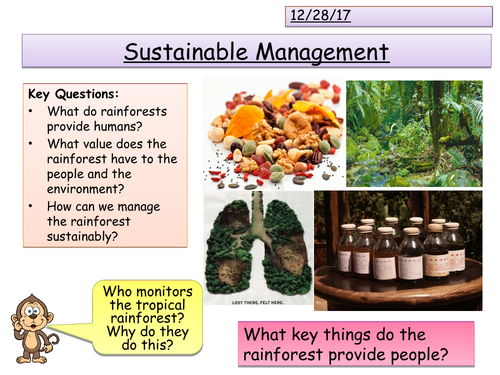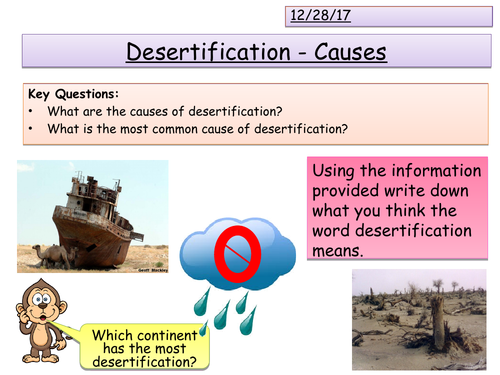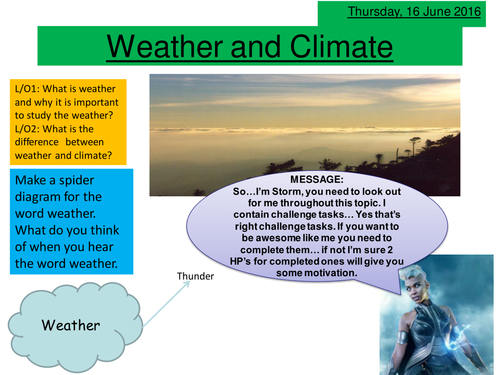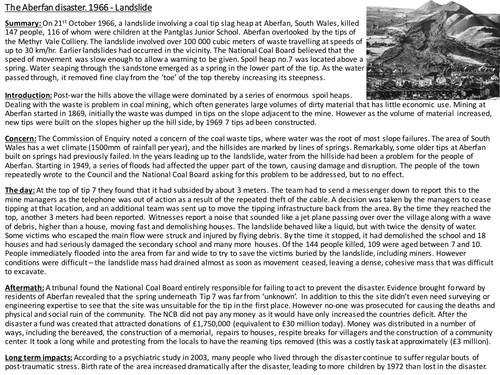
156Uploads
221k+Views
281k+Downloads
All resources

Carbon Budget - AQA A Level
This lesson is based around the new AQA A Level specification. This is a lesson in the unit titled Water and Carbon Cycles. The main aim of this lesson is to cover the following element of the specification:
3.1.1.3 – The carbon budget and the impact of the carbon cycle upon land, ocean and atmosphere, including global climate.
Any pages referenced are from the Oxford physical textbook.
Please note I do not own the rights to any of the images used in this powerpoint.

Tropical Rainforests Characteristics
This lesson is based around the new AQA GCSE specification. This is a lesson in the unit titled Living World. The main aim of this lesson is to cover the following element of the specification:
- The physical characteristics of a tropical rainforest.
- The interdependence of climate, water, soils, plants, animals and people.
- How plants and animals adapt to the physical conditions.
- Issues related to biodiversity.
NOTE - When it refers to page numbers please refer to the fact file provided.

Holderness Coast
This lesson aims to allow students to gain an understanding of what is happening at the Holderness Coastline. It looks at the erosion taking place and the impact this is having on the local area. This is then followed by looking at the management strategies that Holderness has implement and the impact this has caused.
By the end of the lesson students will be able to answer the following key questions:
- What is happening at the Holderness Coastline?
- How is this causing problems for the villages?
- How are they protecting the Holderness coast?

Coastal Management
This lesson aims to allow students to gain an understanding of the different ways to manage the coast. It looks at a range of soft and hard engineering strategies, and encourages students to think about the advantages and disadvantages of these strategies, before debating which of these would be the best for a particular coast (this lesson uses Southend but this can easily be changed for a different location).
By the end of the lesson students will be able to answer the following key questions:
- What are the different types of coastal management?
- Which coastal management is the best and why?

Ecosystems
This lesson is based around the new AQA GCSE specification. This is a lesson in the unit titled Living World. The main aim of this lesson is to cover the following element of the specification:
- The balance between components.
- The impact on the ecosystem of changing one component.

Transportation and Depositional Landforms
This lesson aims to allows students to gain an understanding of longshore drift, deposition, and depositional landforms.
By the end of the lesson students will be able to answer the following questions:
- What other processes occur at the coast?
- Why does sediment get deposited along the coast?
- What is longshore drift and how does it work?
- What other landforms are formed at the coast and how are they formed?

Depositional Landforms - Rivers
This lesson is based around the new AQA GCSE specification. This is a lesson in the unit titled River landscapes in the UK. The main aim of this lesson is to cover the following element of the specification:
- Characteristics and formation of landforms resulting from deposition - levees, floodplains and estuaries.

Planning an Investigation - Presentation, Analysis and Conclusion
This lesson aims to get students to think about how to present, analyse and draw conclusion from data they have collected in the field. This is the 2nd lesson and links to planning an investigation. It gets students to pick appropriate presentation methods, describe and explain their results and to draw conclusions of their investigation. By the end of the lesson students will be able to answer the following key questions:
How can we present your findings?
What do our findings show?
What reasons are there for our findings?

Glaciation and Rivers
This resource contains all the materials to teach a full unit titled Glaciation and Rivers. This is designed for year 7’s however could easily be edited to cater for slightly older year groups.
This resource contains all powerpoints, resources, homeworks and assessment materials. Lesson titles are as follows:
Lesson 1 - Glaciation
Lesson 2 - Glacial Processes
Lesson 3 - Erosional Landforms Part 1
Lesson 4 - Erosional Landforms Part 2
Lesson 5 - Transportational and Depositional Landforms
Lesson 6 - Using Glacial Landforms
Lesson 7 - Mid Unit Assessment
Lesson 8 - The Water Cycle
Lesson 9 - Drainage Basin
Lesson 10 - Fluvial Processes
Lesson 11 - Upper Course Landforms
Lesson 12 - Middle Course Landforms
Lesson 13 - Causes of Flooding
Lesson 14 - River Management
Lesson 15 - End of Unit Assessment
Plus 2 additional pieces of material:
Mid Unit Feedback
End of Unit Feedback

Erosional Landforms - Coasts
This lessons aims to allow students to gain an understanding of the different erosional processes that occur along the coast, followed by how these create a range of coastal landforms.
By the end of the lesson students will be able to answer the following key questions:
- What are the different processes of erosion and how do they work?
- What landforms are formed by coastal erosional and how are they formed?

UK Physical Geography
This lesson aims to get students use to the location of the different mountain regions and the main Rivers located across the UK. This is used mostly for year 7's but can also be adapted to use with the new AQA GCSE Physical Landscapes Topic.
Bundle

Water and Carbon Cycles
All lessons and resources needed to teach the Water and Carbon Cycle unit. The only element missing is the 2 case studies.
Bundle

A Major UK City - Birmingham
This bundle contains all the lessons required to teach 'Urban change in cities in the UK leads to a variety of social, economic and environmental opportunities and challenges'. This is found in the AQA GCSE specification.

Where in the World (Continents and Oceans)
This lesson aims to get students to gain a better understanding of the continents and oceans and their location in the world. In addition to this it gets student to think about the way in which a 2D map is created and therefore the representation of continents/countries on a map. By the end of the lesson students will be able to answer the following key questions:
What is the difference between countries, continents and oceans?
Where are the continents and oceans located?
What are the different map projections and why are they used?

Population Revision (AQA A)
This is a revision lesson that was created for my year 11's based on the AQA A spec. It focuses on the following: The demographic transition model, UK ageing Population, Migration - push and pull factors, Poland to UK migration, Population pyramids, Natural increase and decrease, and China's One Child Policy.

River Management
This lesson is based around the new AQA GCSE specification. This is a lesson in the unit titled River landscapes in the UK. The main aim of this lesson is to cover the following element of the specification:
- The costs and benefits of the following management strategies:
* Hard engineering - dams and reservoirs, straightening, embankments, flood relief channels
* Soft engineering - flood warnings and preparation, flood plain zoning, planting trees and river restoration.

Sustainable Rainforest Management
This lesson is based around the new AQA GCSE specification. This is a lesson in the unit titled Living World. The main aim of this lesson is to cover the following element of the specification:
- Value of tropical rainforests to people and the environment.
- Strategies used to manage the rainforest sustainably – selective logging and replanting, conservation and education, ecotourism and international agreements about the use of tropical hardwoods, debt reduction.
NOTE - When it refers to page numbers please refer to the information provided.

Causes of Desertification
This lesson is based around the new AQA GCSE specification. This is a lesson in the unit titled Living World. The main aim of this lesson is to cover the following element of the specification:
- Causes of desertification – climate change, population growth, removal of fuel wood, overgrazing, over-cultivation and soil erosion.
NOTE - When it refers to page numbers please refer to the information provided.

Weather and Climate
This is a lesson, aimed to get students to think about the difference between weather and climate. In addition to thinking about how weather affects people.

OCR A Level Earth Hazards Case Study Summary Sheets
Case study summary sheets for the Earth Hazards unit of the OCR A Level specification. This includes: Aberfan Landslide, Holbeck Hall Landslide, Venezuelan mudslide, Yangtze River flood, Netherlands storm surge, Northridge and Buji Earthquakes, Asian tsunami, Kashmir earthquake, Montserrat Volcanic eruption and Eldfell Volcanic eruption.

